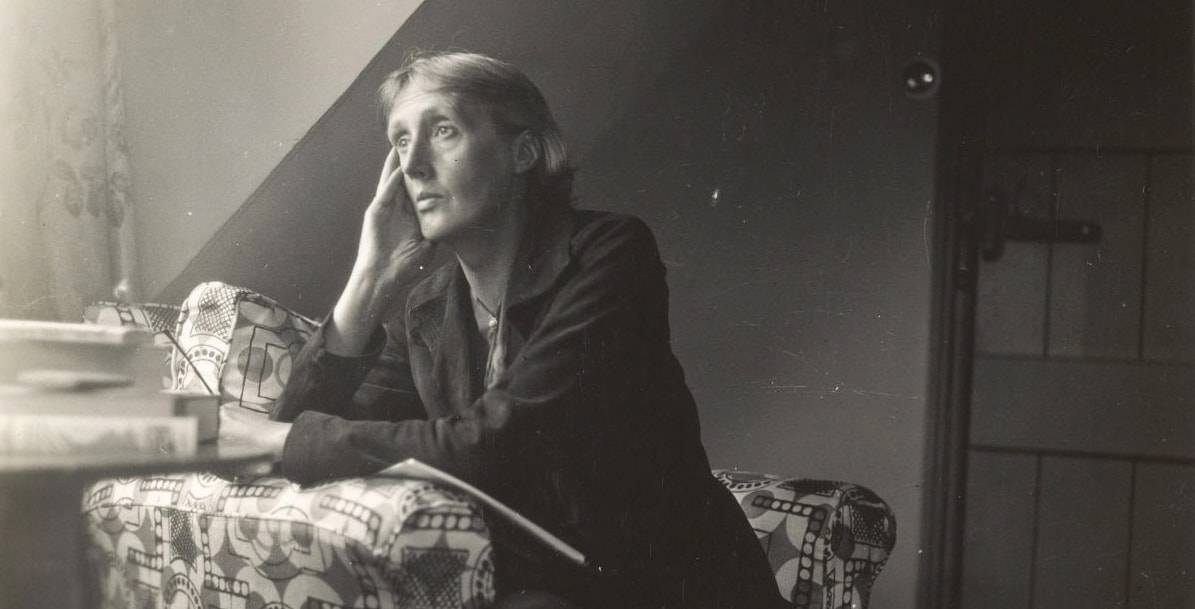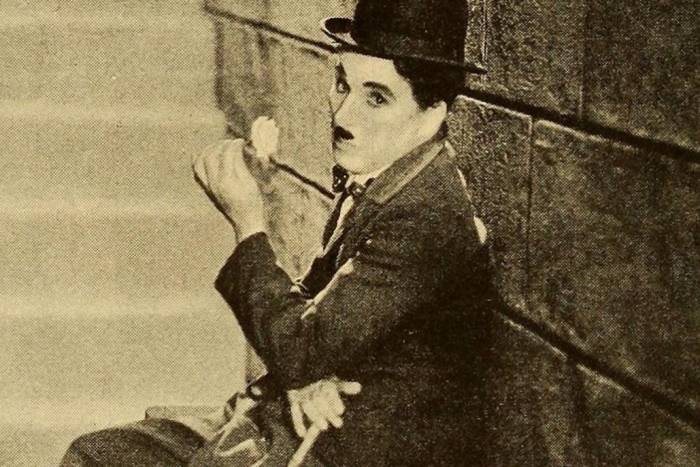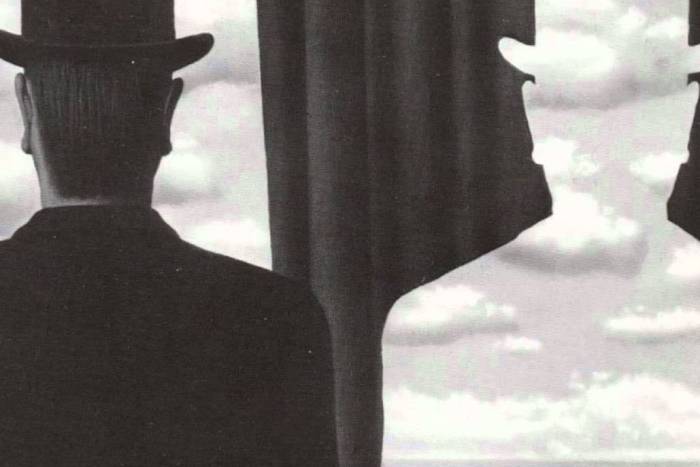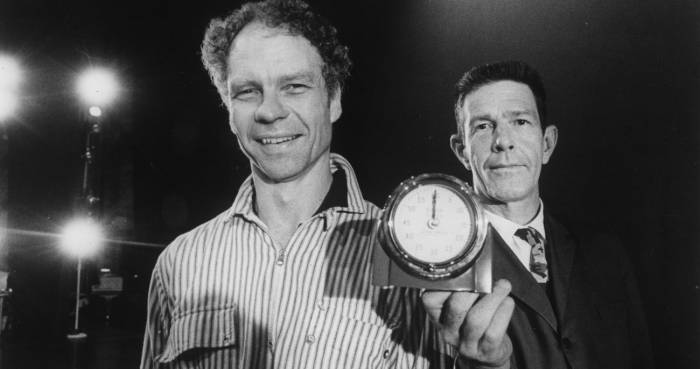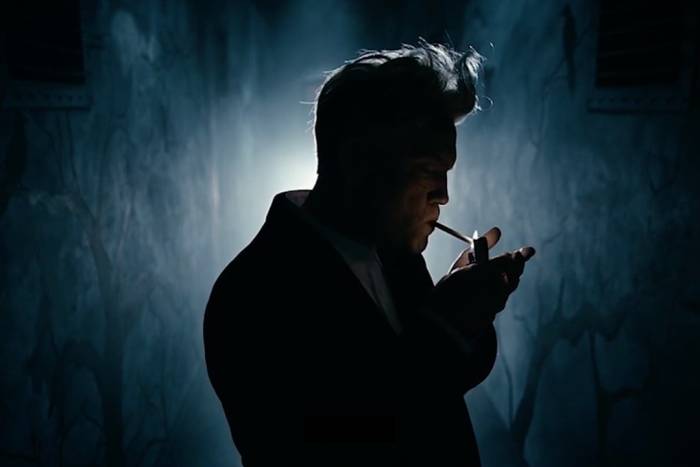The Last Words of Virginia Woolf (An Audio Elegy to her Life, Genius, and Death)
The celebrated composer Max Richter pays tribute to one of the most brilliant literary artists in history.
Few have written with the heartbreaking lucidity of Virginia Woolf. That clarity is evoked not only in her essential written works (essays and novels on the very cusp of literary modernism), but in her life and even in her death. And few such clear and moving texts are more universally descriptive of the human soul than her legendary farewell letter. Works on her books and on Woolf’s life abound even to this day, tributes to a mind whose equal is yet to be found. Among these is a musical composition, Three Worlds: Music from Woolf Works, by the renowned German composer Max Richter. It’s an auditory monument to three of the most important books of the author, born in London in 1882.
The score of Three Worlds: Music from Woolf Works, written by Richter in 2017, was created originally for a performance by the Royal Ballet of London, directed by Wayne McGregor, and critically acclaimed upon its debut. The composition is divided into three parts based on three of Virginia Woolf’s novels: Mrs. Dalloway, Orlando, and The Waves. The process of creating the work involved a thorough investigation of the documentary sources about Woolf, whose life has never ceased to amaze, even today.
The section dedicated to Mrs. Dalloway, to name but one example, begins with Woolf’s own 1937 reading of an essay for the BBC. It’s the only surviving recording of her voice and its sound speaks, much more than the simple words uttered, of the writer’s own interiority and of some of the most deeply rooted conventions of her time.
But it’s the final section of Three Worlds that’s attracted the most attention from listeners. A song entitled “Tuesday” recreates a dream sequence (that hallmark of English modernism) from The Waves. The novel relays six internal and spoken monologues of its main characters, a group of friends. Over the sound of the sea, actress Gillian Anderson calmly reads Woolf’s last words, those she’d written in farewell to her love, Leonard, in March of 1941.
Dearest,
I feel certain that I am going mad again. I feel we can’t go through another of those terrible times. And I shan’t recover this time. I begin to hear voices, and I can’t concentrate. So I am doing what seems the best thing to do. You have given me the greatest possible happiness. You have been in every way all that anyone could be. I don’t think two people could have been happier till this terrible disease came. I can’t fight it any longer. I know that I am spoiling your life, that without me you could work. And you will I know. You see I can’t even write this properly. I can’t read. What I want to say is I owe all the happiness of my life to you. You have been entirely patient with me and incredibly good. I want to say that—everybody knows it. If anybody could have saved me it would have been you. Everything has gone from me but the certainty of your goodness. I can’t go on spoiling your life any longer.
I don’t think two people could have been happier than we have been.
V.
The composition, lasting 20 minutes, includes the voice of a soprano who seems to be drowning in the sound of the waves.
Woolf’s pain-filled words to Leonard – a generous goodbye to him and to writing – retain a beauty, paradoxically, in witness to the artist’s love for life at its fullest expression. (For Woolf, life seemed to include reading and writing by necessity.) More than seven decades later, Woolf’s farewell is as powerful as ever and illustrates even a way of dying worthy only of such a figure. It’s fitting inspiration for a moving piece of music.
Images: Public Domain
Related Articles
Pictorial spiritism (a woman's drawings guided by a spirit)
There are numerous examples in the history of self-taught artists which suggest an interrogation of that which we take for granted within the universe of art. Such was the case with figures like
Astounding fairytale illustrations from Japan
Fairy tales tribal stories— are more than childish tales. Such fictions, the characters of which inhabit our earliest memories, aren’t just literary works with an aesthetic and pleasant purpose. They
A cinematic poem and an ode to water: its rhythms, shapes and textures
Here lies One Whose Name was writ in Water. - John Keats Without water the equation of life, at least life as we know it, would be impossible. A growing hypothesis holds that water, including the
Watch beauty unfold through science in this "ode to a flower" (video)
The study of the microscopic is one of the richest, most aesthetic methods of understanding the world. Lucky is the scientist who, upon seeing something beautiful, is able to see all of the tiny
To invent those we love or to see them as they are? Love in two of the movies' favorite scenes
So much has been said already, of “love” that it’s difficult to add anything, much less something new. It’s possible, though, perhaps because even if you try to pass through the sieve of all our
This app allows you to find and preserve ancient typographies
Most people, even those who are far removed from the world of design, are familiar with some type of typography and its ability to transform any text, help out dyslexics or stretch an eight page paper
The secrets of the mind-body connection
For decades medical research has recognized the existence of the placebo effect — in which the assumption that a medication will help produces actual physical improvements. In addition to this, a
The sea as infinite laboratory
Much of our thinking on the shape of the world and the universe derives from the way scientists and artists have approached these topics over time. Our fascination with the mysteries of the
Sharing and collaborating - natural movements of the creative being
We might sometimes think that artistic or creative activity is, in essence, individualistic. The Genesis of Judeo-Christian tradition portrays a God whose decision to create the world is as vehement
John Malkovich becomes David Lynch (and other characters)
John Malkovich and David Lynch are, respectively, the actor and film director who’ve implicitly or explicitly addressed the issues of identity and its porous barriers through numerous projects. Now
